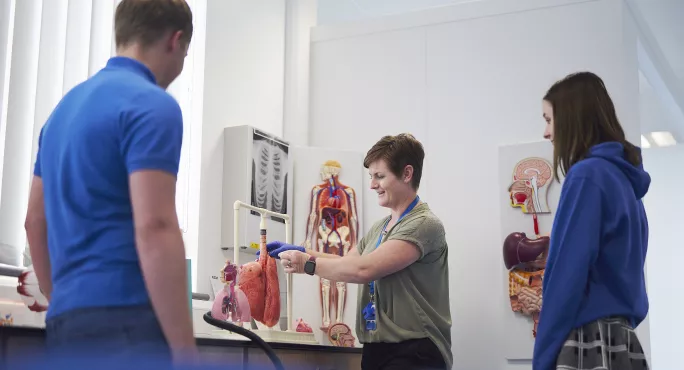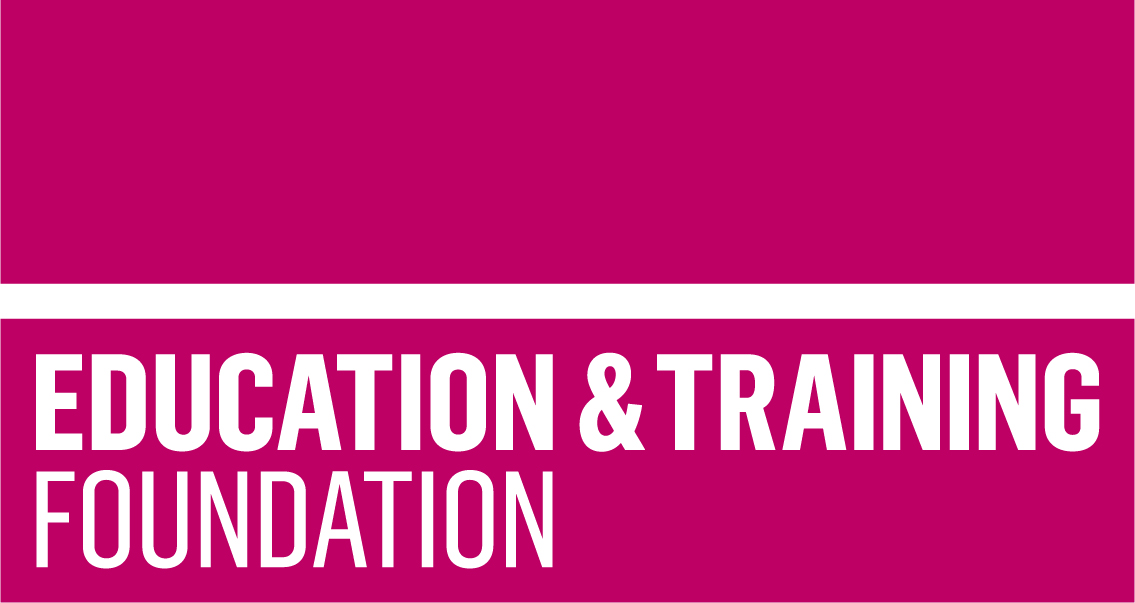How one school made a success of the transition to T Levels

For staff at Hartlepool Sixth Form College, September 2021 was a new beginning. Not only was it the start of a new academic year, but it also marked the delivery of two new qualifications - T Levels in education and childcare, and health - after months of preparation and training.
It’s a journey many sixth forms and further education colleges have been through in the past couple of years; and one that more are gearing up to face from September 2022.
T Levels, the government’s newest vocational qualification, are being rolled out gradually, on a year-by-year basis in England. To begin with, in 2020, just three - education and childcare, digital, and construction - were introduced in less than 50 learning providers across the country.
September 2021 saw seven more routes - building services engineering for construction, digital business services, digital support and services, health, healthcare science, onsite construction, and science - introduced at further providers, including Hartlepool Sixth Form. By 2023, 24 routes will be available to study at hundreds of providers.
A ‘gold-standard’ qualification
The qualification, which has been heralded as the “gold standard” for vocational education, is equivalent to three A levels and combines classroom learning with an on-the-job industry placement of at least 315 hours, or approximately 45 days.
The introduction of any new qualification is tough - and T Levels are no exception. They, intentionally, require much more from students, and staff, than previous vocational qualifications like Btecs or Cambridge nationals. It certainly hasn’t been straightforward, at least from the government’s perspective - there have been challenges around the design of the qualification, decisions around the entry requirements, and the viability of work placements during Covid.
But what has it been like for the staff on the ground? T Level delivery isn’t mandatory: so why are providers deciding to implement them? And how much preparation and training has been needed?
Colleen Sawicki is the curriculum manager for health, sport and business at Hartlepool Sixth Form. She says that there was no question about whether or not the college would introduce them.
“We’re always looking to make sure that what we have available for students is the most up-to-date version and prepares them for their next steps,” she says. “So, yes, T Levels are brand new, and they really consider what the best route is for students and how to prepare them for that, but as an education provider, we’re always looking for the best qualification for our students.”
Preparations began the year before delivery, in September 2020. Many colleges have had to update their facilities to ensure they had everything in place for students to be able to develop their industry skills and knowledge - and funding has been available from the government to help them do so.
However, at Hartlepool, a brand new health hub was opened in 2018, complete with a three-bed ward and treatment area, and they had already updated their simulated assisted living and nursery areas.
“We had been planning for a while: we knew what was coming, and we always wanted our students to have more opportunity for practical application of theory to practice, so that’s always been very much part of what we do here anyway,” she says.
Time to upskill
Having the facilities ready to go meant that Sawicki and her team could dedicate more time and resources to updating another crucial component of the programme: their own skills and knowledge.
Many of the staff came directly from industry into the classroom - and therefore were already extremely knowledgeable: however, the department agreed that some extra support could go a long way. They chose to make use of the Department for Education funded T Level Professional Development (TLPD) offer, provided by the Education and Training Foundation (ETF), which was free to access, and enabled a wealth of opportunities for staff.
To begin with, the ETF helped Sawicki complete a training needs analysis, to identify where there may be any gaps in skill. It was really worthwhile, she says: everyone was at different levels and needed slightly different training.
“Some of the most common gaps were around the science elements in the health T level: they are pretty demanding, and we saw a real opportunity to upskill staff. But others needed extra training on things like putting theory into practice and industry insights, and the ETF provided all of that,” she says.
The training was provided through a mixture of online and face-to-face workshops, and staff were provided with e-learning resources, which they could return to for support.
Sawicki also took advantage of specific training for middle managers, which took her through how to manage the curriculum, how the core components could be managed, and how to overcome any potential challenges.
The TLPD offer gave staff the opportunity to collaborate and network with others who were going through the same process: together with colleagues from New College Durham, they looked at the sequencing of the course, and how it would be delivered, both for students and then for employers.
A road map for success
At the end, they produced road maps for the qualification, detailing what students were learning at any specific time, what assessments they may undertake and what skills they were aiming for. This process, Sawicki stresses, was really helpful for everyone: being able to see the qualification laid out in full ensured staff felt secure during delivery.
It was a vast programme of support, and Sawicki says that teachers had an hour a week on their timetable set aside specifically for T Level development. Beyond that, though, there were networking events to attend, both local and national, and staff also undertook work placements themselves within the industry.
So how helpful was the TLPD programme? Could the college have managed without it?
In the timescale given, definitely not, says Sawicki.
“We didn’t know what we needed to know about T Levels at that point. It was all very, very new, and it was great to have somewhere, almost like a one-stop-shop, which offered support on all things T level,” she says.
“Even though we’re in delivery now, we still dip in and out of things all the time. We’ve made some brilliant contacts at the ETF: just having somebody there that you can speak to about anything is really useful. They can always point us in the right direction for training, or a mentor if you’re struggling with anything specific. It’s very useful to have this bespoke level of support.”
‘We didn’t know what we needed to know about T Levels. It was all very new, and it was great to have a one-stop-shop that offered support on all things T level’
However, despite the support from the TLPD programme through the ETF, there have still been challenges for Hartlepool. The greatest one, Sawicki says, has been around work placements.
“Post-Covid, there were still a lot of places that didn’t want to take our students on, due to the nature of health and education settings. That was really challenging,” she says.
“It’s also been quite challenging to prepare students for placement: we found with students this year, as a result of the pandemic we had to have an increased focus on the development of work-related skills.”
The facilities and skill of the staff at Hartlepool allowed these challenges to be tackled head-on: in the health hub, for example, extra sessions have been put on to ensure students have been able to practise industry skills, with the support of expert teachers. Student confidence and skill level grew and, through the industry connections made through taking up the TLPD offer, the staff engaged with local employers in the local area and managed to secure industry placements for this summer.
Facing up to the challenge
The T Level course is a challenging one - for everyone involved - but Sawicki says that students are making more progress than ever.
“We have had students needing additional support and reassurance about the skill level needed in some of the components. But they managed to get through and their resilience has grown and grown,” she says. “The sense of accomplishment for those students is just fantastic.”
Staff, too, have developed confidence and resilience in the preparation for delivery. Skill sets have been built upon and expanded, says Sawicki, and ultimately, that’s made a huge difference in what they’re able to deliver in the classroom, and in turn, on what students have been able to achieve.
For more information about the fully-funded TLPD offer, please visit the ETF website
topics in this article
